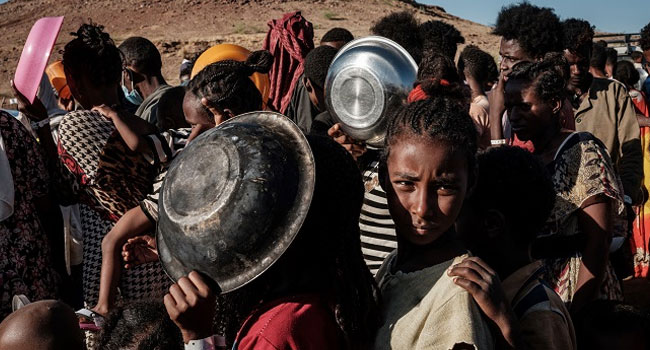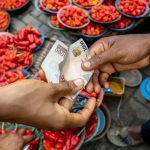At least seven states across the Northwest and Northeast parts of Nigeria have been projected to be at a “crisis food security level” in 2024.
The World Bank, which revealed this in its latest food security report, said the crisis is a result of insecurity and armed conflicts across the region.
The states highlighted by the international financial institution are Borno, Adamawa, Kaduna, Katsina, Yobe, Sokoto, and Zamfara states.
Beyond Nigeria, the report noted that other countries in the West African region, such as Burkina Faso, Chad, and Niger, will also experience varying degrees of food insecurity.
“It is projected that most areas in West and Central Africa will remain minimally food insecure (IPC Phase 1) until May 2024, with some being categorized as Stressed IPC 2.
“Nigeria (far north of Adamawa, Borno, Kaduna, Katsina, Sokoto, Yobe, and Zamfara states) will be at crisis food security levels (IPC Phase 3), mostly because of persistent insecurity, armed conflict, and deteriorating livelihoods,” the report said.
It further stated that areas in northeastern states such as Abadam, Bama, Guzamala, Marte, etc. will experience emergency food security levels (IPC Phase 4) as a result of limited household food stock and access to markets and humanitarian aid.
The report also noted that over 63.2 percent of low-income countries experienced inflation levels surpassing 5 percent, marking a 1.3 percent point increase compared to the previous food update on January 17, 2023.
In lower-middle-income countries, 73.9 percent saw inflation levels exceeding 5 percent, while 48 percent of upper-middle-income countries maintained similar percentages as the last update, with no changes recorded, the bank disclosed.
It was also noted that in high-income countries, over 44.4 percent reported food inflation levels surpassing 5 percent, marking a 1.9 percent decrease compared to the previous food update.
Additionally, the report revealed that, in real terms, food price inflation outpaced overall inflation in 71 percent of the 165 countries where data was available.
Persecondnews recalls that the latest Consumer Price Index (CPI) report from the National Bureau of Statistics (NBS) puts food inflation in Nigeria at over 33 percent.
Also In October 2023, the Food and Agricultural Organisation (FAO) warned that about five million Nigerians were at risk of hunger in 2024.
Similarly, the United Nations (UN) reported in its Africa Regional Overview of Food Security and Nutrition that, since the onset of the 2020 COVID-19 pandemic, approximately 78 percent of Africans have been unable to afford a nutritious diet.





































Leave a comment